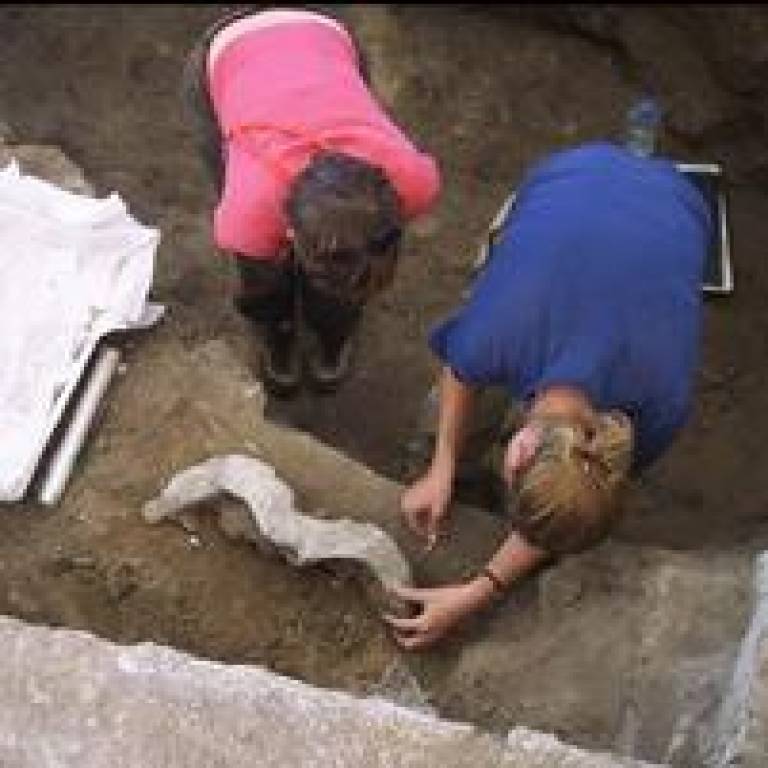First mission for Conservators Without Borders
22 June 2007
A team from the UCL Institute of Archaeology leaves today for the Greek town of Kythera on the first 'Conservators Without Borders' trip, made by possible by a grant from UCL Futures.

Melina Smirniou (UCL Archaeology MSc 2006) set up Conservators Without Borders with Christie Pohl and Dominica D'Arcangelo, whom she met during graduate studies at UCL. Together they aim to provide free field conservation support to archaeological sites that could not otherwise afford it, prioritising those where finds are in need of special or urgent attention.
During this first initiative, the team will treat Minoan, Classical and Roman artefacts that were excavated in the 1960s but placed in temporary storage last year when an earthquake rendered the local archaeological museum unsafe.
The conservators will treat finds that are actively deteriorating and restore others to prevent further damage. They plan to improve current storage arrangements and re-house many of the objects. The team will also advise museum staff and local volunteers on various conservation methods and best practices.
"As well as carrying out conservation activities, we will aim in all our projects to engage with communities local to the sites to determine sustainable methods of long-term conservation," explained Melina. "We also want to nurture working relationships between archaeologists and conservators on-site, and to train conservation students and volunteers."
The conservation student on this first trip is Saray Naidorf, currently in her second year of an MSc in conservation at the UCL Institute of Archaeology and also an intern at the inorganic conservation department at the British Museum. She will join the team for two of the total three weeks of the Kythera project.
"I think that Conservators Without Borders is an interesting project not only for the field experience, but also because I like the concept of providing help to archaeological sites that do not have the funds to have a conservator," Saray said. "I hope to gain further training and to stabilise as many artefacts as possible."
Conservators Without Borders will be able to provide support to up to six archaeological projects over two years thanks to a £12,570 grant from UCL Futures, a fund consisting of donations from UCL alumni, staff and students. Beyond this timeframe, the team hopes to secure additional funding from new sources to continue its work.
To find out more, contact Melina Smirniou and follow the links at the top of this article.
Image 1: The Conservators Without Borders team in action
Image 2: Melina Smirniou, co-founder of Conservators Without Borders
 Close
Close

